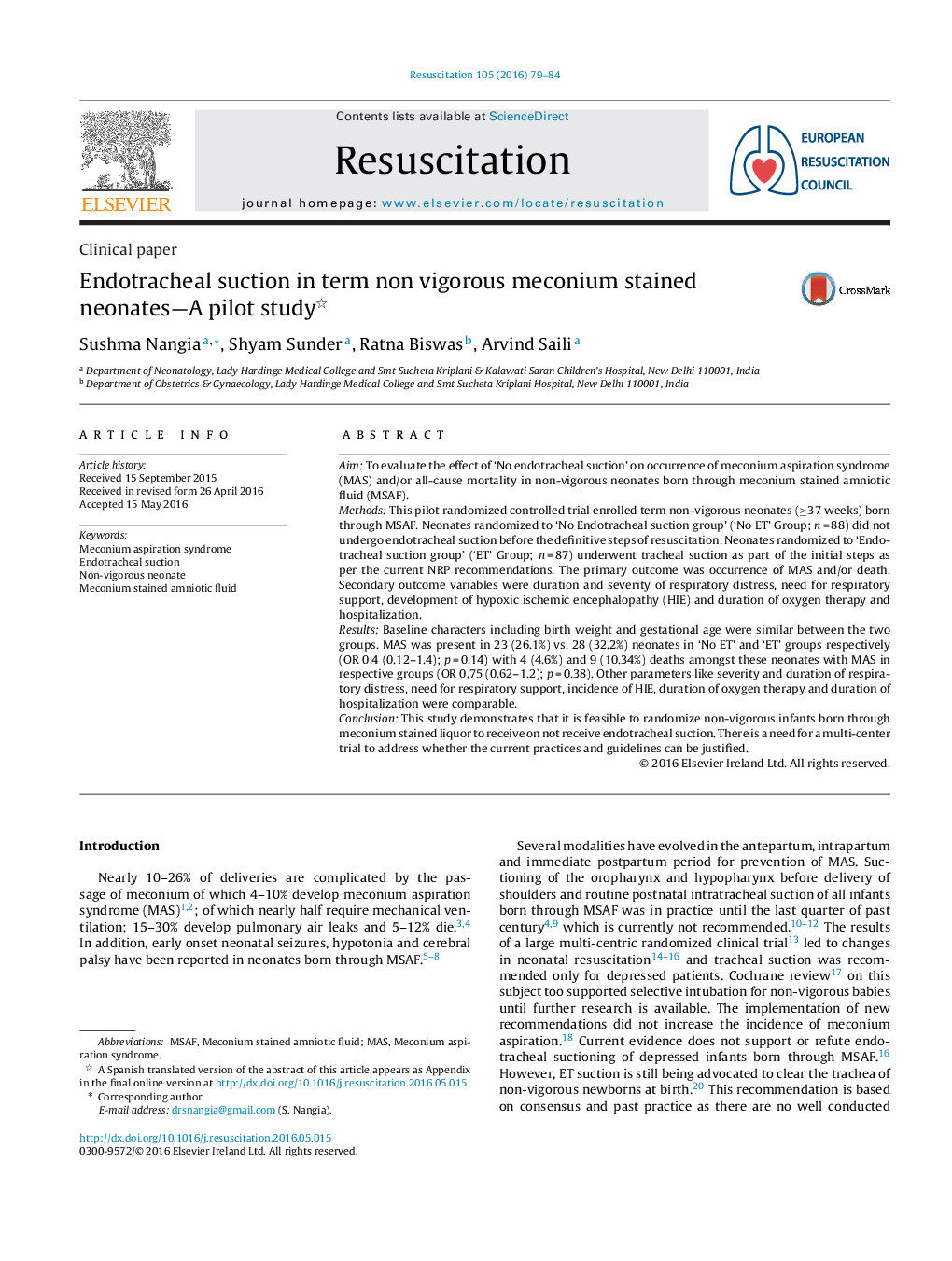| Article ID | Journal | Published Year | Pages | File Type |
|---|---|---|---|---|
| 5997147 | Resuscitation | 2016 | 6 Pages |
AimTo evaluate the effect of 'No endotracheal suction' on occurrence of meconium aspiration syndrome (MAS) and/or all-cause mortality in non-vigorous neonates born through meconium stained amniotic fluid (MSAF).MethodsThis pilot randomized controlled trial enrolled term non-vigorous neonates (â¥37 weeks) born through MSAF. Neonates randomized to 'No Endotracheal suction group' ('No ET' Group; n = 88) did not undergo endotracheal suction before the definitive steps of resuscitation. Neonates randomized to 'Endotracheal suction group' ('ET' Group; n = 87) underwent tracheal suction as part of the initial steps as per the current NRP recommendations. The primary outcome was occurrence of MAS and/or death. Secondary outcome variables were duration and severity of respiratory distress, need for respiratory support, development of hypoxic ischemic encephalopathy (HIE) and duration of oxygen therapy and hospitalization.ResultsBaseline characters including birth weight and gestational age were similar between the two groups. MAS was present in 23 (26.1%) vs. 28 (32.2%) neonates in 'No ET' and 'ET' groups respectively (OR 0.4 (0.12-1.4); p = 0.14) with 4 (4.6%) and 9 (10.34%) deaths amongst these neonates with MAS in respective groups (OR 0.75 (0.62-1.2); p = 0.38). Other parameters like severity and duration of respiratory distress, need for respiratory support, incidence of HIE, duration of oxygen therapy and duration of hospitalization were comparable.ConclusionThis study demonstrates that it is feasible to randomize non-vigorous infants born through meconium stained liquor to receive on not receive endotracheal suction. There is a need for a multi-center trial to address whether the current practices and guidelines can be justified.
